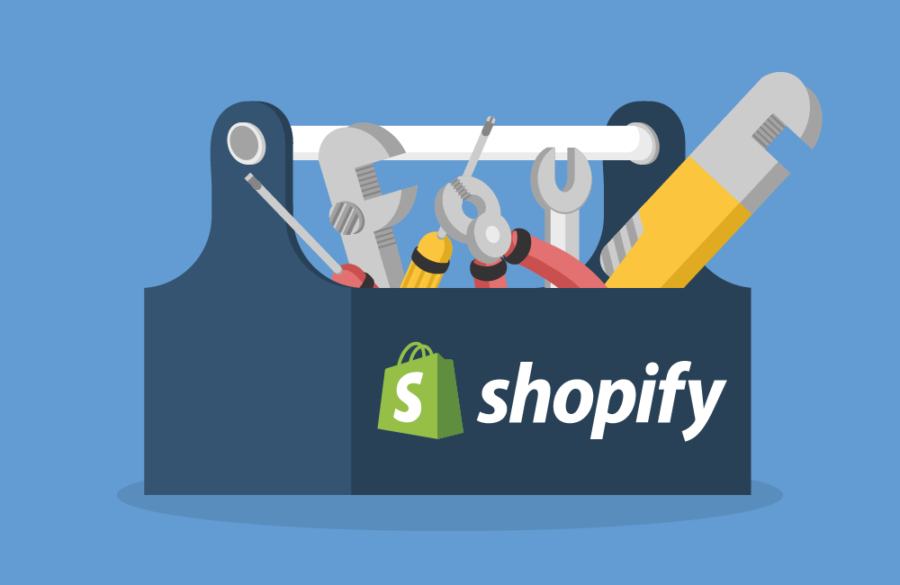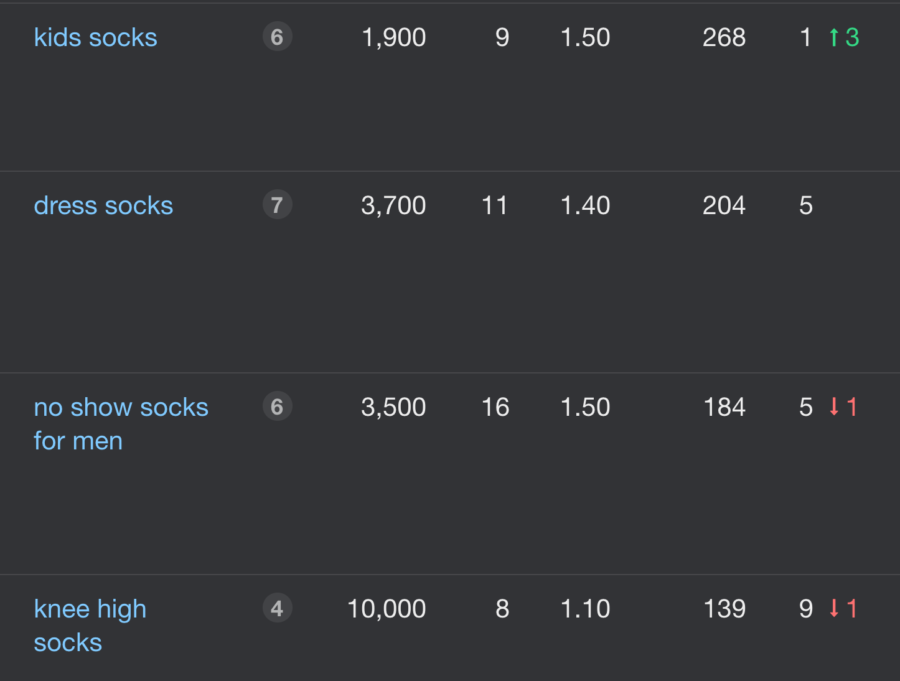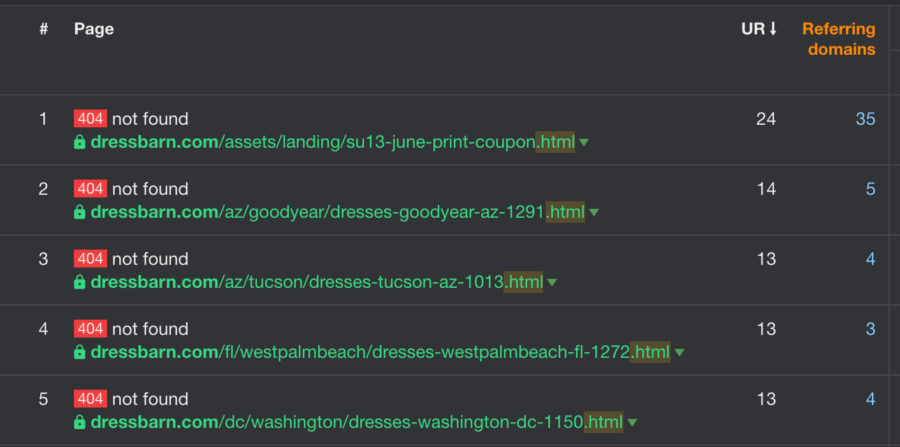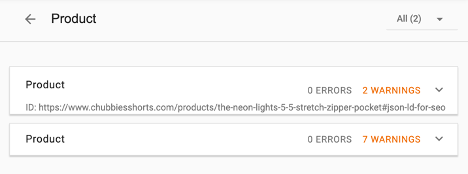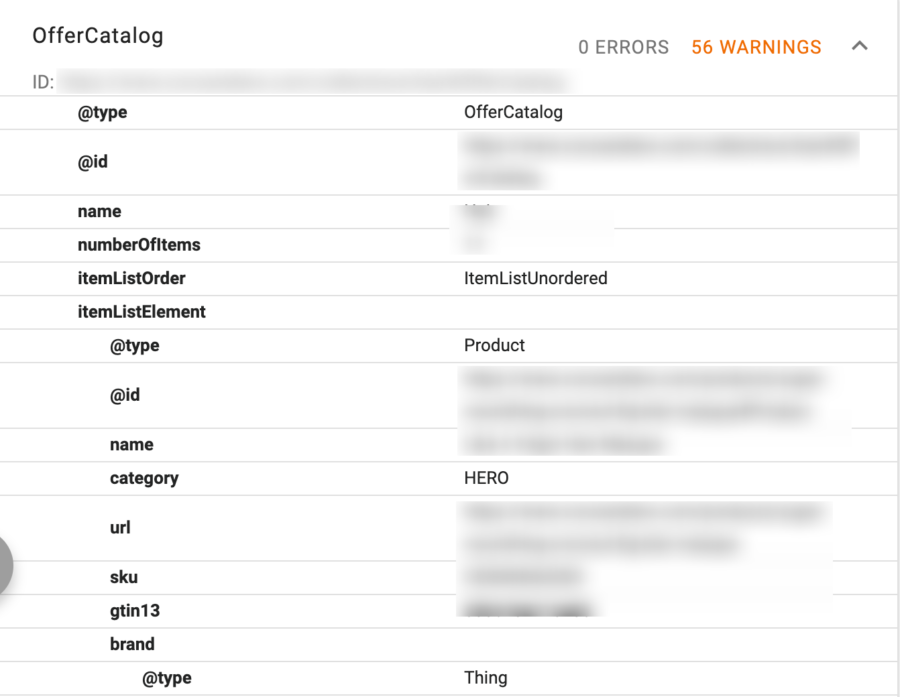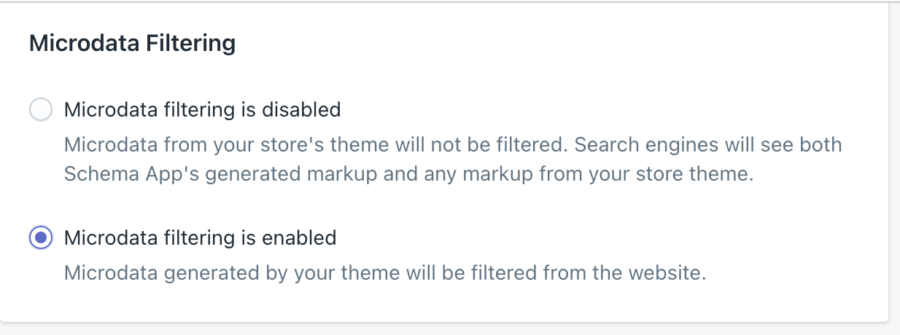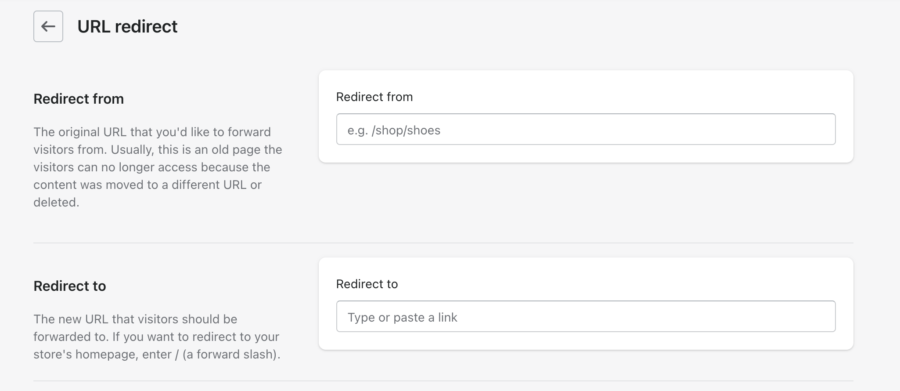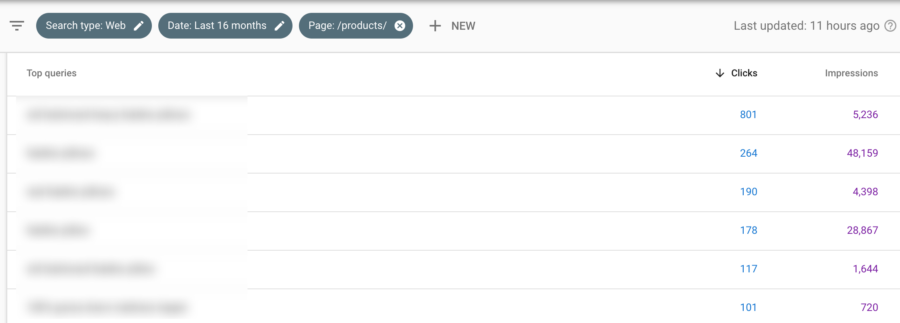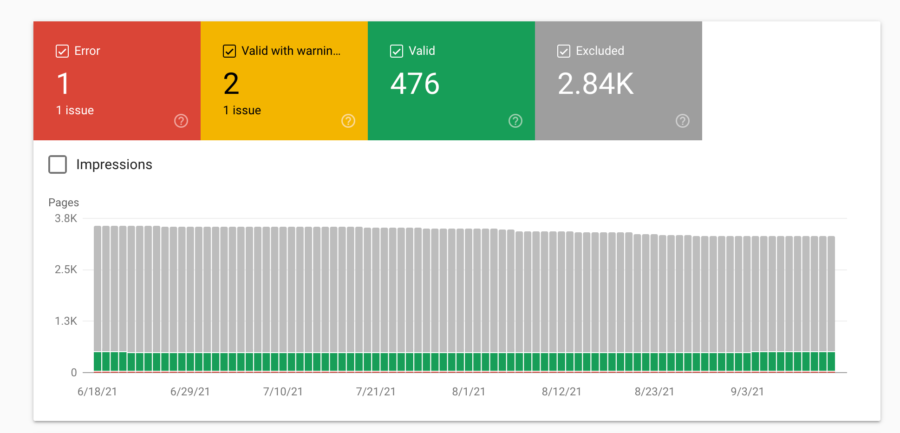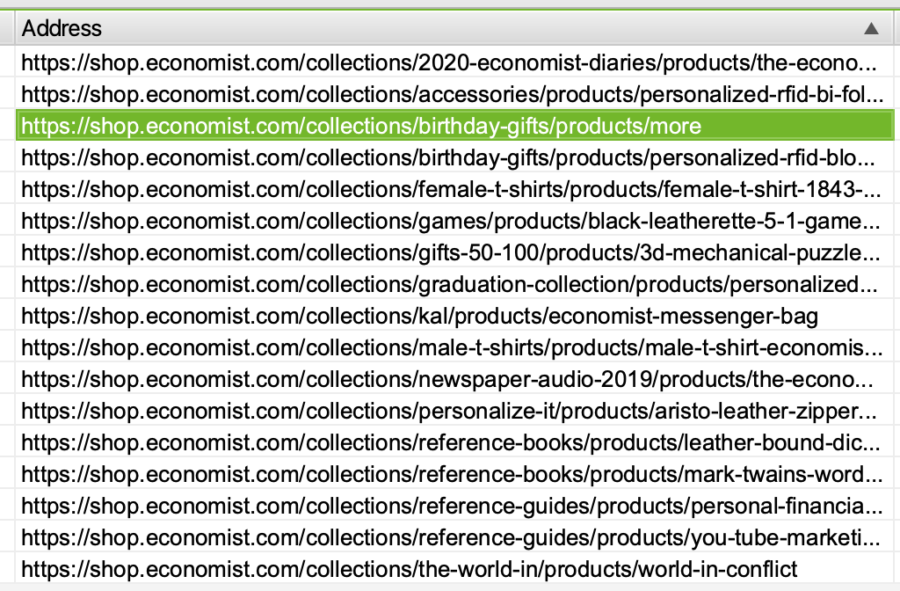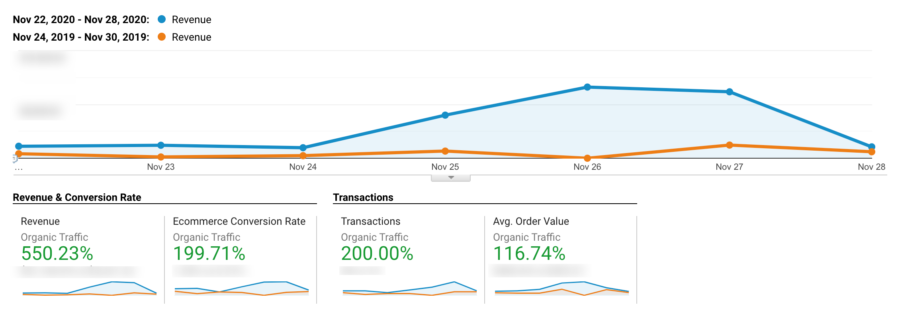Table of Contents
At Go Fish Digital, we work with a lot of Shopify clients and have developed our own internal framework for how we perform SEO on Shopify. As a result, over the years we’ve started to really get a feel for the tools and apps that we prefer working with. While Shopify’s app marketplace might not contain as many options as WordPress plugins, there are still plenty of Shopify SEO tools that are at your disposal to make your life easier.
Related Content:
- Technical SEO Agency
- Ecommerce SEO Agency
- Shopify SEO Services
- Franchise SEO Agency
- Enterprise SEO Services
In this post, we’ll talk about some of our favorite tools to use with the platform. This includes some Shopify tools and apps that are native to their ecosystem as well as general SEO tools that we find ourselves using with our clients over and over again.
What Are The Best Shopify SEO Tools?
The best Shopify SEO tools are:
- Ahrefs
- Schema App Total Schema Markup
- Crush.pics
- Lazysizes Library
- Shopify Redirection
- Search Console
- Screaming Frog
- STAT
- Google Analytics
- Rewind Backups
Below, we’ll take a deeper dive into each one.
1. Ahrefs
Shopify SEO Tool Best For: Keyword research, backlink analysis, competitive research
Of all the Shopify SEO tools we couldn’t live without, Ahrefs is certainly up there. Ahrefs provides a great suite of SEO tools that includes keyword research, backlink analysis, rank tracking, competitive research, content gap analysis and much more. This is a tool that we use daily for our Shopify clients at Go Fish Digital.
One of the strongest components of Ahrefs is in its keyword research functionality. Let’s say we’re doing keyword research for a client in the apparel industry and they’ve identified Bombas as a competitor. Since we’re most interested in our Shopify site’s category pages, we want to find keyword opportunities where Bombas’s category pages rank well. Finding these keywords could be highly beneficial as they are more likely to convert since Google has identified the keywords as transactional.
Using Ahrefs, we can perform a search for “bombas.com/collections/” to show us all of the queries their category pages rank well for. Note how the “Prefix” option is selected here.
Then by looking at the “Organic Keywords” report, we can see the keywords that drive the most traffic to their category pages. This will then show us all of the different category page keywords where Bombas is ranking well.
These are great opportunities as these are keywords where a /collections/ page is ranking, thus more likely to drive site conversions. If these keywords are relevant to our site’s products, we can then start to add them to our tracking tools.
Ahrefs also has great backlink analysis tools. One of my favorites is the “Best By Links” report, which shows you a domain’s most linked-to pages. If you filter this report to show the 404 pages with the most backlinks, you might be able to find link reclamation opportunities. This is especially powerful if you’ve migrated to Shopify from another platform and might not have redirected all of your backlinks.
For instance, in this example we can see how Dress Barn migrated from another platform (possibly Magento) to Shopify. However, they could redirect some of these old URLs to reclaim lost link equity.
Overall, Ahrefs provides a fantastic suite of tools for Shopify owners. While it is a paid solution, it provides one of the best values in terms for how many tools you get for the price. With an Ahrefs subscription, you’ll have a lot of what you need to start SEO on Shopify sites.
2. Schema App Total Schema Markup
Shopify SEO Tool Best For: Structured Data
Structured data on Shopify can actually be quite the headache. One of the issues with structured data is that there are many fragmented sources that will try to implement structured data on your store. Oftentimes, both the theme and various third party apps will add schema to the site. For instance, both your theme and Yotpo could be adding “Product” structured data like the example below:
This isn’t the ideal way to implement structured data. Ideally, your structured data will be consolidated so that only a single instance of each schema type is available. This helps better outline exactly what the content of your page is about.
Fortunately, the Schema App Total Schema Markup is a great Shopify SEO tool and makes adding structured data very easy. Once you install the app, it should automatically add the following structured data to your site:
- Organization: Home page
- OfferCatalog: Category pages
- Product: Product pages
- BlogPosting: Blog posts
The OfferCatalog schema is a really nice touch as it allows for markup to exist on your category pages which most sites don’t really have. This marks up every single product on your category pages and gives Google additional information such as their name, price and availability.
As well, Schema App can also be configured to filter out duplicate schema from Shopify’s themes via the “Microdata Filtering” section. This can make it even easier to clean up the redundant schema.
Overall, we really love this app for adding structured data to Shopify sites. One thing that you might consider if you have a developer is to have them implement structured data instead of doing it through an app. This will help save you from paying a monthly service fee just to have structured data on the site. However, if you don’t have these resources, this app is the way to go.
3. Crush.pics
Shopify SEO Tool Best For: Image compression
It’s no secret that Shopify stores are going to use a lot of images. In general, the more SKUs you offer on the store, the more images there are going to be. Of course, a common recommendation to improve site speed is to optimize images. However, when you’re dealing with larger Shopify stores, this can be quite difficult to do at scale.
Crush.pics is a great Shopify SEO tool that automatically compress all of your site’s images. Simply install the app and Crush.pics should start compressing all of your Shopify domain’s images. It will also automatically compress all new images that are uploaded to the store. Using this app is a great way to apply at least some level compression to all images that are used on the site.
4. Lazysizes Library
Shopify SEO Tool Best For: Lazy loading
Another way that you can further optimize the images on your Shopify site is by implementing lazy loading. Lazy loading occurs when images of a page only load once a user has scrolled to them in the viewport. This helps save a user’s browser bandwidth as all of a page’s images don’t load immediately, so they’re only served what they need to see.
Instead of using an app to implement lazy loading, we really like to use the lazysizes library. This library works extremely well with Shopify and is generally very straightforward for a developer to implement. By using lazysizes, you can easily implement lazy loading functionality on your Shopify store.
5. Shopify URL Redirects
Shopify SEO Tool Best For: Redirects
Shopify makes redirecting URLs really easy out of the box. In order to implement redirects, you don’t need to download any special app to do so. Instead, you can do this natively in Shopify by navigating to Online Store > Navigation > View URL Redirects
In this tool, you’ll be able to see all of the redirects that have been implemented on Shopify. As well, you can easily add new ones by selecting “Create URL redirect”:
This is fantastic for cleaning up old and outdated URLs. For instance, if you have recently migrated from another platform, you might consider using the URL redirects tool to ensure that your old URLs are properly mapping to your new ones. You can even bulk upload URLs to redirect using a CSV file.
Please note that in order to implement redirects on Shopify, you must completely delete the URL first. This means that if the page is still active on Shopify (even if it isn’t published), you cannot implement the redirect. You must first delete the page.
6. Google Search Console
Shopify SEO Tool Best For: Crawl analysis, Keyword research
Throughout the years, Google Search Console has been a tried and true tool for SEOs everywhere. Search Console offers a wide variety of reports that can be useful for both technical and contextual SEO. Since store owners will gain value from all of its different reports, Search Console is an essential Shopify SEO tool.
One of the most popular reports in Search Console is the “Performance” report. This report shows you what keywords users are using to find your site and how many clicks/impressions each keyword is getting. This can be really valuable information to have, especially for revenue-generating pages. For instance, in the Performance report, you can filter down to URLs that contain “/products/” in the URL slug. This will show you the top keywords where you product pages are generating the most clicks and impressions:
Very quickly, you’re able to see potentially valuable keywords that are mapped to your pages that generate revenue for your site. As well, you can pull a similar report for category pages by filtering down to see pages with “/collections/” in the URL. These are fantastic keywords that you can then track and optimize for.
Another report of Search Console that’s worth pointing out is the “Coverage” report. This is a fantastic section of Search Console that shows you which URLs Google is crawling and whether or not it is including them in the index.
If the URL is not getting indexed, Google will give you some level of detail as to why it’s excluding it such as “Alternate page with proper canonical tag” or the infamous “Crawled – currently not indexed“. By using this report you can start to check for some technical SEO issues around crawling and indexing:
- Are URLs that should be indexed getting excluded?
- Is Google able to crawl URLs that it shouldn’t be crawling?
- Are low quality pages getting included in the index?
We recommend that Shopify store owners dig into this report to analyze how you site is being handled, especially if you have a large store. The insights you pull from Search Console’s Coverage report can be really valuable to understanding how Google is processing your site’s content.
7. Screaming Frog
Shopify SEO Tool Best For: Technical SEO analysis
What “best SEO tool” list is complete without Screaming Frog? It’s a go-to in the arsenal of the vast majority of SEOs. However, there’s a very good reason for it. It can really help identify technical SEO issues and opportunities in so many different ways.
Why is Screaming Frog such a great Shopify SEO tool? Here are some of the ways we use it:
- Perform a site crawl to identify duplicate content created by Shopify such as product pages that use the /collections/.*/products/ URL path. Identify if there are any internal links to these duplicate pages and work with a developer on eliminating them.
- Analyze the crawl to see how many internal links are pointing to key pages such as your site’s products pages. Consider implementing elements such as “Related Products” internal links if you’re not finding a lot of internal links.
- Connect Screaming Frog to PageSpeed Insights to get benchmark site speed data. After you’ve made changes, compare your benchmark metrics to the new ones.
- Analyze the anchor text used to link to key pages such as your product and category pages. Sometimes category pages might not be using descriptive text to reference product pages.
- If you’ve migrated to Shopify, use Screaming Frog to confirm that all of your old URLs correctly 301 redirect to the new ones.
- Crawl Shopify’s sitemap.xml file. Identify pages that are non-indexable and consider deleting and redirecting any outdated ones.
For instance, here’s an example of some of the duplicate /collections/.*/products/ pages on The Economist’s Shopify site. We can easily find them with a Screaming Frog crawl:
And that’s only scratching the surface. There’s a whole host of ways you can use Screaming Frog with Shopify sites. If you plan on doing any technical SEO analysis for Shopify (or eComm in general), this is a must-have. Of course, Screaming Frog can also be used for other eCommerce platforms, such as improving Magento SEO.
8. STAT
Shopify SEO Tool Best For: Rank tracking
In terms of a rank tracking solution, STAT is one of the best on the market. STAT is unparalleled in terms of the ranking data that it collects. STAT will track your keywords daily, which gives you a lot more insight in to how your rankings are trending over time. Additionally, you can use keyword segmentation, to isolate your rankings by different groups of keywords.
For example, with a Shopify site, you might create keyword segments within STAT that track your different categories of products over time. If your store sells running shoes, you might set up keyword segments for categories such as “womens running shoes”, “mens runnings shoes” and “trail running shoes”.
Using STAT, you could then see ranking trends over time for those specific categories. Here’s what our “women’s running shoes” segment might look like. We can see that in general, rankings for these keywords have been trending upwards.
However, looking at our “men’s running shoes” segment, we can see that rankings appear to be trending downward. We might want to look at optimizations that we can apply to those specific pages:
STAT is definitely more of an enterprise-level tool so it comes at a bit of a cost. If you’re a smaller business, you might consider using another rank tracking solution such as Moz Pro, Ahrefs, or SEMRush. You may also be able to access STAT data through an agency partner (we use STAT at Go Fish Digital for example).
9. Google Analytics
Shopify SEO Tool Best For: Website analytics
Of course, you’re going to want to track more than rankings. Both organic traffic and organic revenue should serve as core KPIs for your Shopify SEO campaign. In general, there’s no easier way to track this data than by using Google Analytics. As the most popular Web analytics platform, Google Analytics provides you with robust data that you can use to measure the success of your campaign. As well, Google Analytics is completely free to install and use.
One of our favorite KPIs to track is YoY organic traffic. For instance, if you want to see how your store performed the week of Black Friday as compared to the previous year, you can easily do so using Google Analytics. Simply create a segment for “Organic Traffic” and then use a comparison timeline to compare organic traffic to the previous year. Using an example, we can see how this website generated a lot more organic revenue as compared to the week of Black Friday during the previous year.
This is just one of the many insights to your site’s data you’ll be able to get with Google Analytics. Google Analytics is an absolutely must-have Shopify SEO tool for any store.
10. Rewind Backups
Shopify SEO Tool Best For: Website backups
As we all know, SEO isn’t just changing words on a page anywhere. It requires coordination with multiple teams from design to developers. When new functionality is added to your site such as schema, UX changes, or new page designs, things don’t always go as planned. This is why it’s essential that you have some sort of backup solution. Even just knowing that you have this will make implementations feel like much less pressure as you can always revert the site back to its previous state. While it’s not strictly an “SEO” tool, this Shopify app will make your life a whole lot easier and much more stress free.
Once installed, Rewind Backups is pretty easy to use. You can choose the different types of pages you wish to restore including blogs, pages and images. Overall the existence of this app on your store will give you a peace of mind that’s well worth it.
Conclusion
Using the Shopify SEO tools and apps above, you should be well equipped with the technology you need to start improving rankings on your site. While no single tool can immediately improve your SEO without research and implementation from an analyst, they can help give you insights that you might not have had otherwise. If you have any questions on the best tools or our Shopify SEO services, feel free to reach out to us!
Other Shopify SEO Resources
- Shopify Speed Optimization
- Improving Shopify Duplicate Content
- Shopify Sitemap.xml Guide
- Shopify Robots.txt Guide
- Shopify Structured Data
- Shopify Plus SEO
- All Shopify SEO Articles
Search News Straight To Your Inbox
*Required
Join thousands of marketers to get the best search news in under 5 minutes. Get resources, tips and more with The Splash newsletter:
